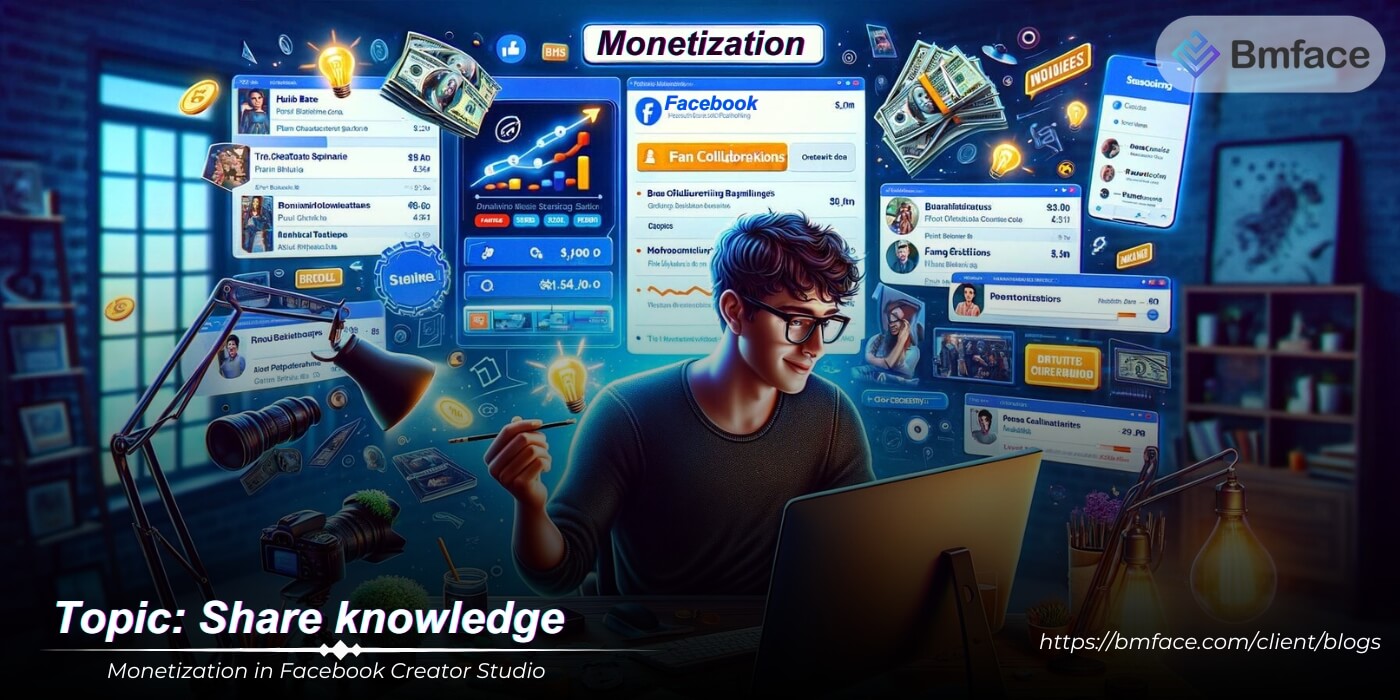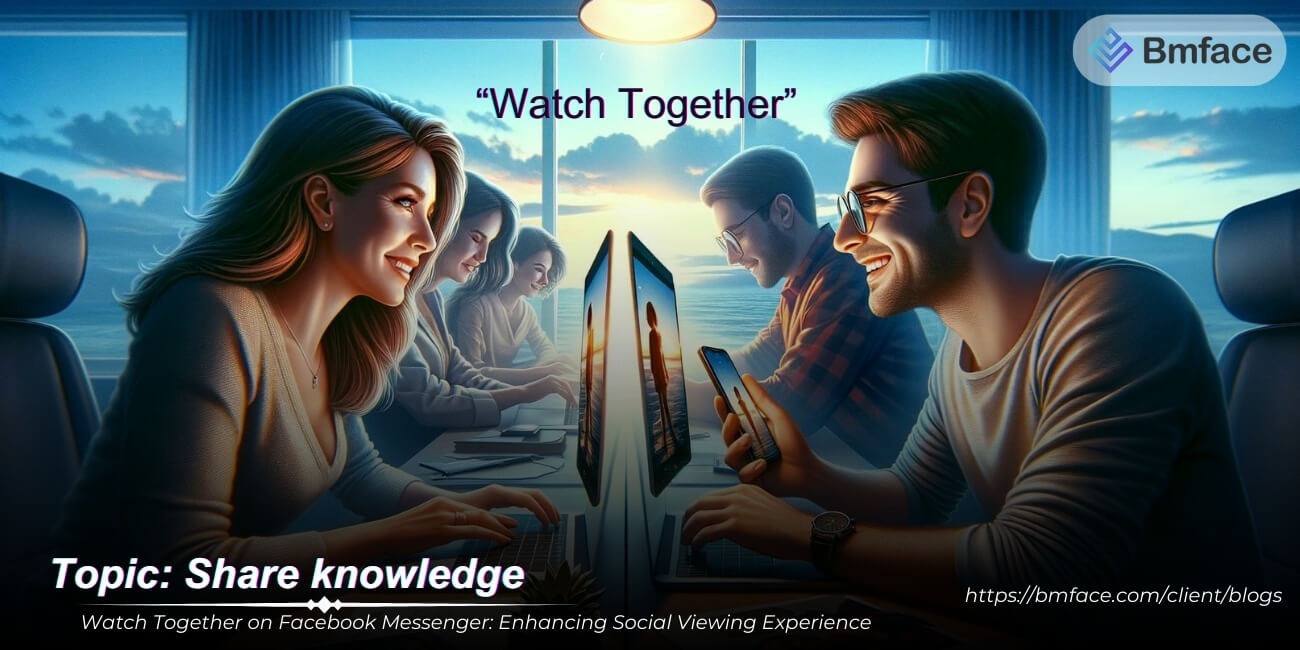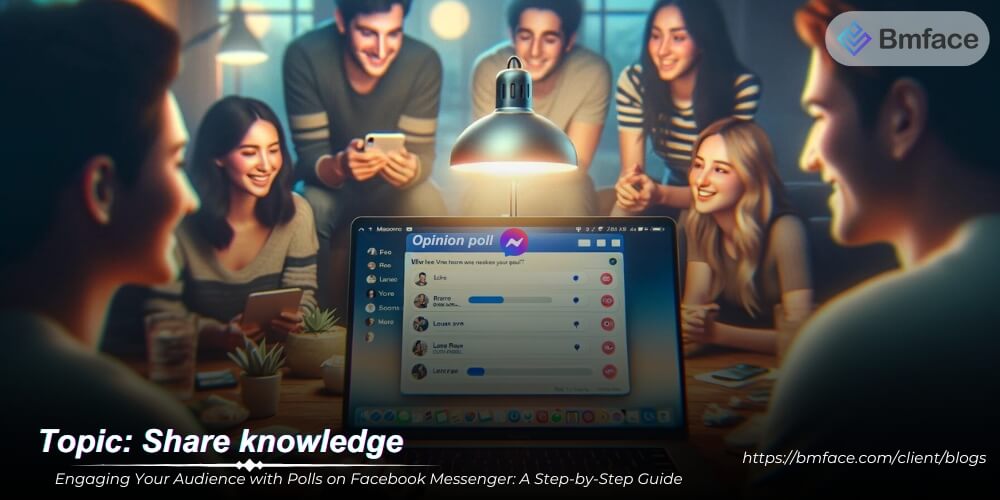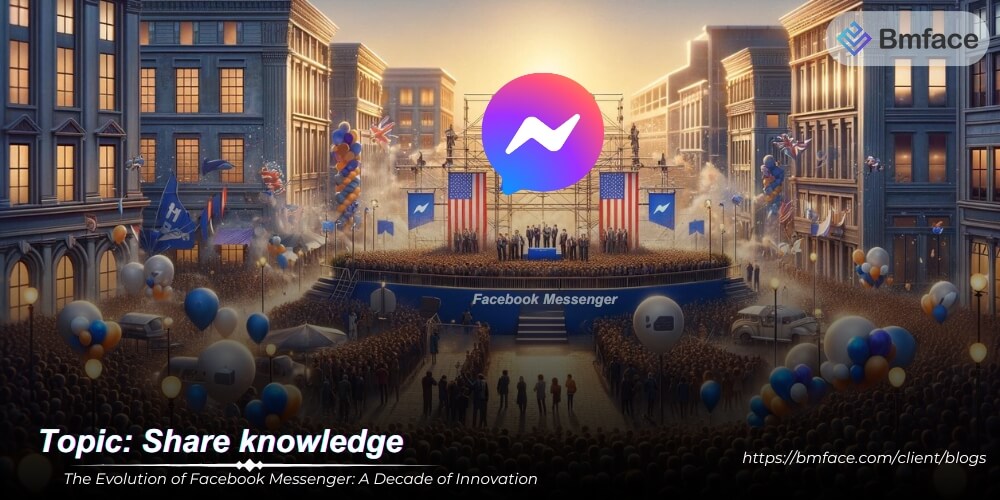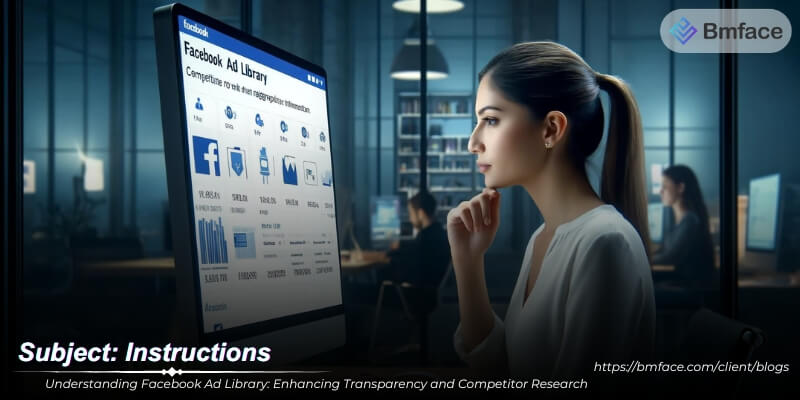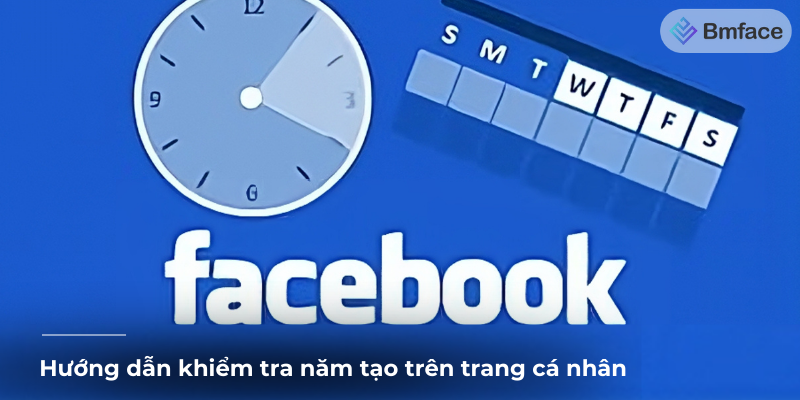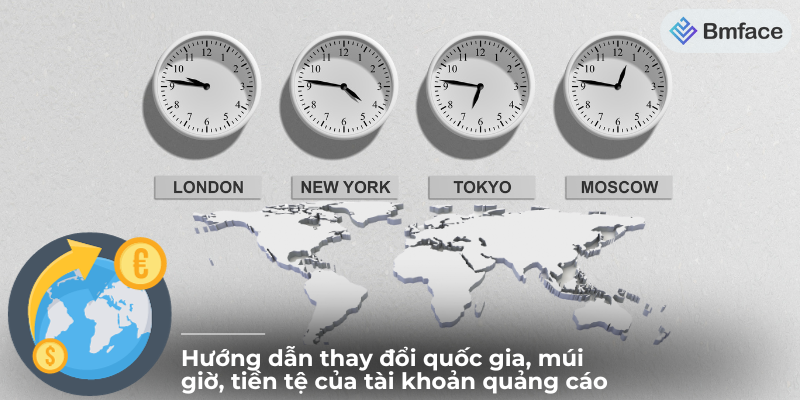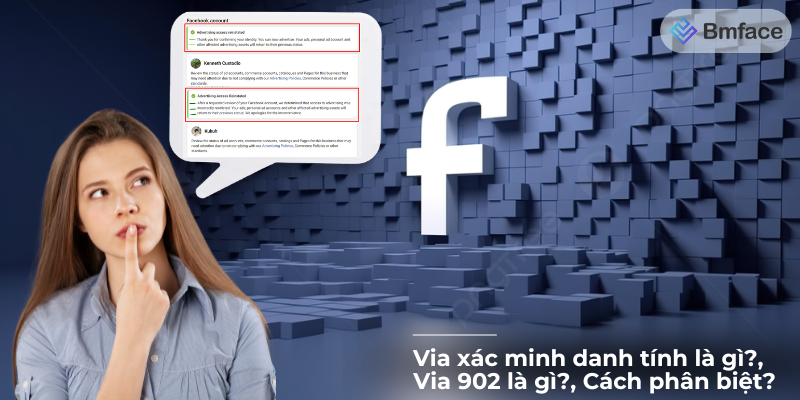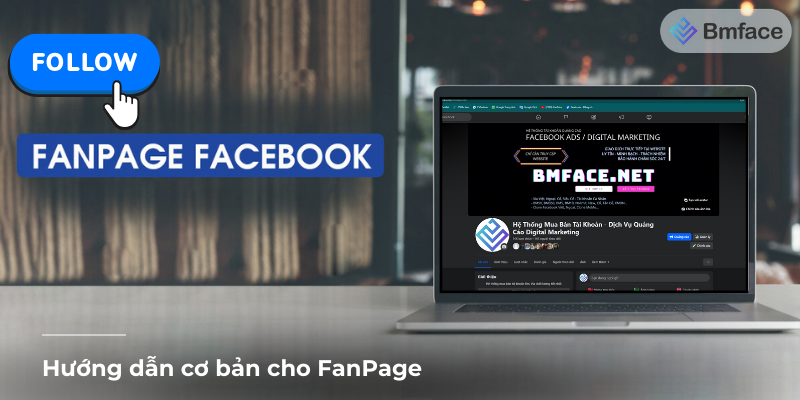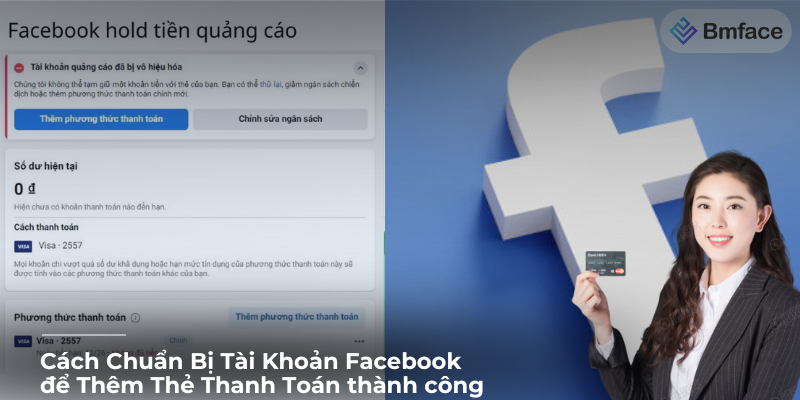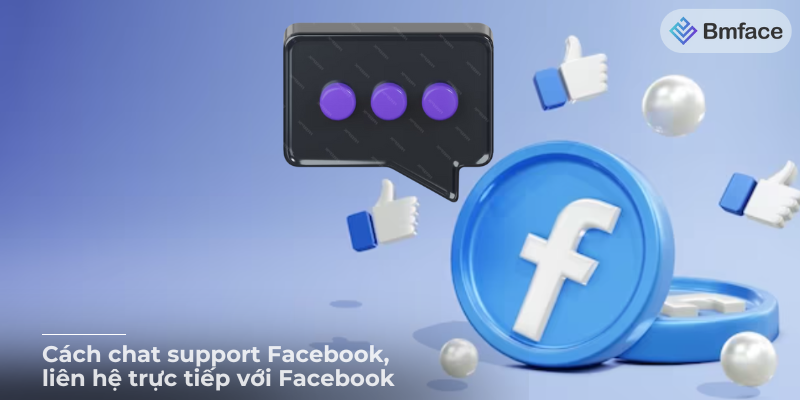The evolving landscape of digital media continuously seeks to break down the barriers between different platforms. With the potential for cross-platform messaging between Facebook Messenger and WhatsApp, the way users interact online could undergo a significant transformation. BMface wrote this article to explore the meaning and possibilities of integrating these two powerful messaging systems.
The Integration of Facebook Messenger and WhatsApp
Integrating Facebook Messenger and WhatsApp represents a strategic move towards unifying communication channels under the Facebook Inc. umbrella, aiming to provide a seamless messaging experience for users. Here’s an analysis of why such an integration is beneficial and how it stands currently:
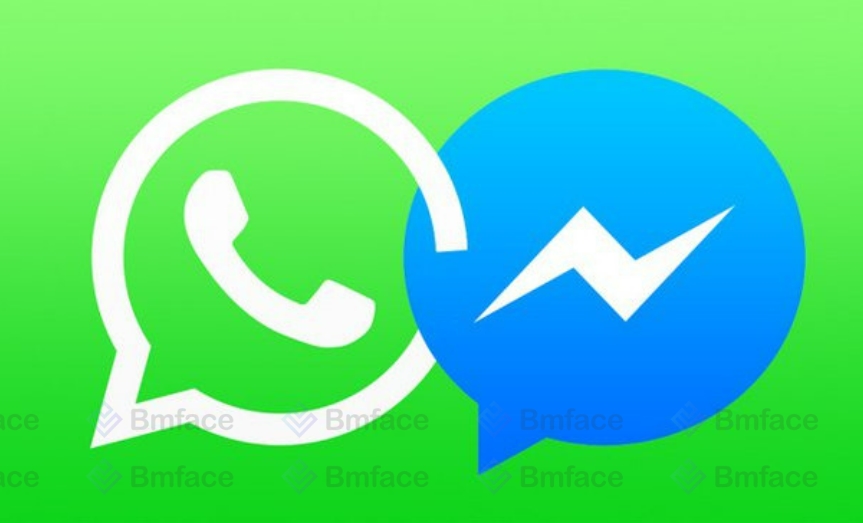
1, Benefits of Cross-Platform Messaging Integration
a, Unified Communication
- Streamlined Messaging: Users can communicate across Facebook Messenger and WhatsApp without needing to switch apps, which is particularly useful for businesses that interact with customers globally.
- Consistency: Provides a consistent experience for users who engage with brands or individuals who maintain a presence across both platforms.
b, Enhanced User Experience
- Convenience: Users can choose their preferred platform without concern about the recipient’s platform preference, making communication more accessible and flexible.
- Increased Reach: Integrating both platforms allows users to reach a broader audience, as they can connect with contacts on either platform from a single app.
c, Business Efficiency
- Customer Service: Businesses can manage customer interactions more efficiently by consolidating messages into a single service, regardless of the customer's preferred platform.
- Marketing Strategies: Offers new ways to engage with audiences, such as coordinated cross-platform campaigns that leverage the unique strengths of each platform.
2, Current State of Messaging Platforms
a, Facebook Messenger:
- Features: Offers a rich feature set including voice and video calls, group chats, stories, and the ability to send money. It also supports various integrations with third-party apps and custom bot development, making it a versatile tool for personal and business communication.
- Integration: Deeply integrated with the Facebook ecosystem, allowing users to interact with business pages directly from the Facebook interface and participate in marketplace transactions.
b, WhatsApp:
- Simplicity and Security: Known for its clean interface and strong focus on security with end-to-end encryption, making it trusted for personal and sensitive business communications.
- Usage: Popular internationally, especially in markets like India, Brazil, and parts of Europe, where it’s used not just for personal chats but also for business transactions and customer service.
3, Future Prospects
The move towards integrating these platforms is part of a broader strategy by Facebook Inc., now Meta, to create a more interconnected experience across its suite of apps. Here are some potential developments:
a, Interoperability
- Cross-Messaging Capabilities: Future updates may allow users to send messages from WhatsApp to Facebook Messenger and vice versa, effectively bridging the gap between the platforms.
b, Privacy and Data Integration
- Data Sharing: Ensuring privacy standards are met while allowing data to flow between systems will be crucial, especially given WhatsApp’s end-to-end encryption.
- Regulatory Compliance: Any integration will need to comply with global data protection regulations, which could affect how and when full integration is achieved.
c, Enhanced Functionality
- Shared Features: We might see a unified feature set that brings some of WhatsApp’s simplicity and security features to Messenger and vice versa, such as bringing Messenger’s app integrations to WhatsApp.
The integration of Facebook Messenger and WhatsApp could redefine digital communication norms by providing a unified platform that enhances convenience, extends reach, and improves operational efficiency, especially for businesses. This strategic move could significantly benefit users by merging the extensive functionality of Messenger with the simplicity and security of WhatsApp, although it will require careful navigation of privacy concerns and regulatory landscapes. As this integration evolves, it will likely become a cornerstone of how global communications are conducted in the digital age.
Potential Benefits of Cross-Platform Messaging
The potential benefits of cross-platform messaging between WhatsApp and Facebook Messenger are significant, both for individual users and businesses. By enabling messages to flow seamlessly between these platforms, Meta (formerly Facebook Inc.) can provide a more integrated and efficient communication experience. Here’s a deeper look into the potential advantages:

1, Unified User Experience
a, Seamless Communication
- Cross-Platform Messaging: Imagine being able to initiate a conversation on Facebook Messenger and continue it on WhatsApp, or vice versa, without any disruption. This would streamline personal and professional interactions, making digital communication much smoother.
- Consolidated Contact List: Users would have access to their contacts from both platforms in a single, unified interface, reducing the need to maintain separate contact lists and switch between apps.
b, Simplified App Ecosystem
- Reduced App Overload: With the functionality of both apps available in one place, users can reduce the number of apps they need to manage, simplifying their digital space.
- Enhanced Features: Features unique to each platform could become available across both, such as WhatsApp’s end-to-end encryption on Messenger or Messenger’s customizable themes on WhatsApp.
2, Enhanced Business Communications
a, Broader Reach for Businesses
- Single Interface for Customer Interactions: Businesses could interact with customers on both WhatsApp and Messenger from a single platform. This would make managing customer communications easier and more effective, allowing businesses to reach a wider audience without extra effort.
- Unified Advertising and Customer Service: Companies could streamline their advertising campaigns and customer service operations across both platforms, ensuring consistent messaging and branding.
b, Increased Efficiency and Productivity
- Automated Tools Across Platforms: Integrating chatbots, automated replies, and other AI-driven tools across both platforms would provide businesses with powerful tools to enhance customer engagement and automate routine tasks.
- Data Insights and Analytics: Cross-platform data collection could provide deeper insights into customer behavior and preferences, enabling businesses to tailor their strategies more precisely.
3, Potential Challenges and Considerations
a, Privacy and Security
- Data Privacy Concerns: Integrating two platforms involves sharing data between them, which must be handled with strict adherence to privacy laws like GDPR. Ensuring end-to-end encryption across both platforms could be a technical challenge.
- User Consent: Users should have control over whether their data is shared between platforms, including the option to opt-in or opt-out of cross-platform messaging.
b, Technical and Regulatory Hurdles
- Complex Integration: The technical integration of two large platforms, each with its own architecture and encryption protocols, would be a significant undertaking.
- Compliance with Regulations: Any integration must comply with international regulations, which could vary significantly between different regions.
The integration of WhatsApp and Facebook Messenger promises a host of benefits for users and businesses, including seamless communication, streamlined management of social interactions, and enhanced business capabilities. However, achieving these benefits requires careful consideration of privacy, security, and regulatory challenges. If successfully implemented, this could set a new standard for how social media platforms operate, making digital communication more unified and efficient than ever before.
Challenges and Considerations
The integration of WhatsApp and Facebook Messenger, while offering significant potential benefits, also comes with notable challenges and considerations, particularly in terms of privacy, security, and technical complexity. Here's a detailed look at these challenges and the factors that need to be carefully considered:

1, Privacy and Security Concerns
a, Data Integration Issues
- Privacy Concerns: The integration involves merging user data from WhatsApp, known for its end-to-end encryption, with Facebook Messenger, which has faced scrutiny over its privacy practices. Ensuring that user data is handled securely and in compliance with global privacy standards like GDPR and CCPA is critical.
- End-to-End Encryption: WhatsApp's end-to-end encryption ensures that messages are only readable by the sender and recipient. Maintaining this level of security on Messenger, which traditionally does not offer end-to-end encryption by default, poses a significant challenge.
b, User Trust
- Maintaining Trust: Users trust WhatsApp for secure communications because of its encryption. Any integration must preserve this trust by maintaining high security standards, or it could lead to user attrition.
- Transparency: Clear communication about how user data will be used, stored, and protected is essential to maintaining user trust. Transparency about any changes to data handling practices is crucial.
2, Technical Barriers
a, Integration Complexity
- Infrastructure Challenges: Integrating the technical infrastructures of WhatsApp and Messenger, each designed independently with different protocols, could be complex and costly. Ensuring that the integrated system is robust, reliable, and scalable requires significant engineering resources.
- Performance Issues: There is a risk that merging these platforms could impact the performance users expect, such as speed and reliability of message delivery. Balancing integration with performance optimization is crucial.
b, Development and Maintenance
- Ongoing Development: The integration is not a one-time effort but requires ongoing development to adapt to evolving technological and user needs.
- Resource Allocation: Significant resources must be dedicated not only to the integration itself but also to continuous monitoring, updating, and securing the unified platform.
3, Regulatory and Compliance Challenges
Compliance with Global Regulations
- Adhering to Regulations: Both platforms operate globally and must comply with a variety of data protection and privacy laws across different jurisdictions. Integrating these platforms must not compromise compliance with these regulations.
- Handling Cross-Border Data Transfers: The integrated platform must manage cross-border data transfers in compliance with international laws, which can vary widely and change frequently.
The potential integration of WhatsApp and Facebook Messenger presents an exciting opportunity to streamline communication and enhance user engagement across platforms. However, the challenges, particularly concerning privacy, security, and technical complexity, are significant. Addressing these challenges requires careful planning, robust security measures, transparent communication with users, and a commitment to maintaining the high standards of privacy and security that users expect. If successfully managed, the integration can lead to a more cohesive and efficient communication experience for users worldwide.
Future Prospects and Developments
The future prospects and developments in the integration of Facebook Messenger and WhatsApp present a landscape rich with opportunities for innovation, particularly in the realms of artificial intelligence and regulatory compliance. Here's a closer look at what could lie ahead:
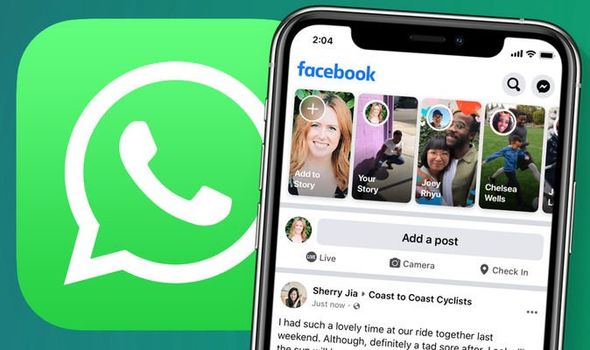
1, Technological Innovations
a, Advanced AI and Bots
- Smarter Bots: The integration could see the deployment of more sophisticated AI-driven bots that can understand context and deliver personalized responses. These bots could be used across both platforms, making them more versatile and intelligent.
- Enhanced Customer Service: AI enhancements could lead to bots that handle complex customer service scenarios, providing timely solutions and even anticipating customer needs based on data from both platforms.
b, Improved User Interface
- Unified Experience: Future developments might include a more streamlined user interface that integrates features from both apps into a single platform without compromising their distinctive functionalities.
- Feature Portability: Features such as WhatsApp’s end-to-end encryption could be introduced to Messenger, while Messenger’s diverse app integrations could enhance WhatsApp’s capabilities.
2, Regulatory Impact
a, Data Protection and Privacy
- Strict Compliance: Integration must adhere to stringent data protection laws like GDPR in Europe and other similar regulations worldwide. This could slow down the integration process but ensures user data is handled responsibly.
- Privacy by Design: Future developments will likely incorporate privacy by design, embedding data protection from the outset of designing any new feature or integration.
b, Antitrust Considerations
- Market Dominance: As these platforms integrate, they must navigate global antitrust laws designed to prevent any one company from monopolizing the market, ensuring fair competition.
3, Future Developments
a, Cross-Platform Functionality
- Seamless Messaging: Eventually, users might be able to send messages from WhatsApp to Messenger and vice versa seamlessly, blurring the lines between these platforms.
- Interoperable Features: Features such as payments, video calls, and story sharing could become interoperable between the two platforms, providing a richer user experience.
b, New Communication Paradigms
- Beyond Text and Voice: Future integrations could include more innovative communication forms like augmented reality (AR) experiences and virtual reality (VR) meetings, supported by the infrastructure of both platforms.
Conclusion
The integration of Facebook Messenger and WhatsApp holds vast potential for transforming digital communication. While the technological innovations promise enhanced functionality and user experience, they must be pursued with a rigorous commitment to privacy, security, and compliance with regulatory standards. The journey towards a unified messaging solution will likely be gradual, involving careful planning and adaptation to ongoing feedback and legal requirements. If executed well, this could redefine the scope and effectiveness of how we connect digitally, making communication more fluid, secure, and productive for users around the world.
For more insights and updates on effective social media strategies, make sure to follow Bmface and our tutorial blog, where we share the latest and most effective content marketing tips.
Cảm ơn bạn đã theo dõi bài viết. Mua hàng tại Bmface.com để ủng hộ đội ngũ Admin viết thêm nhiều bài viết hay. Xin cảm ơn!




